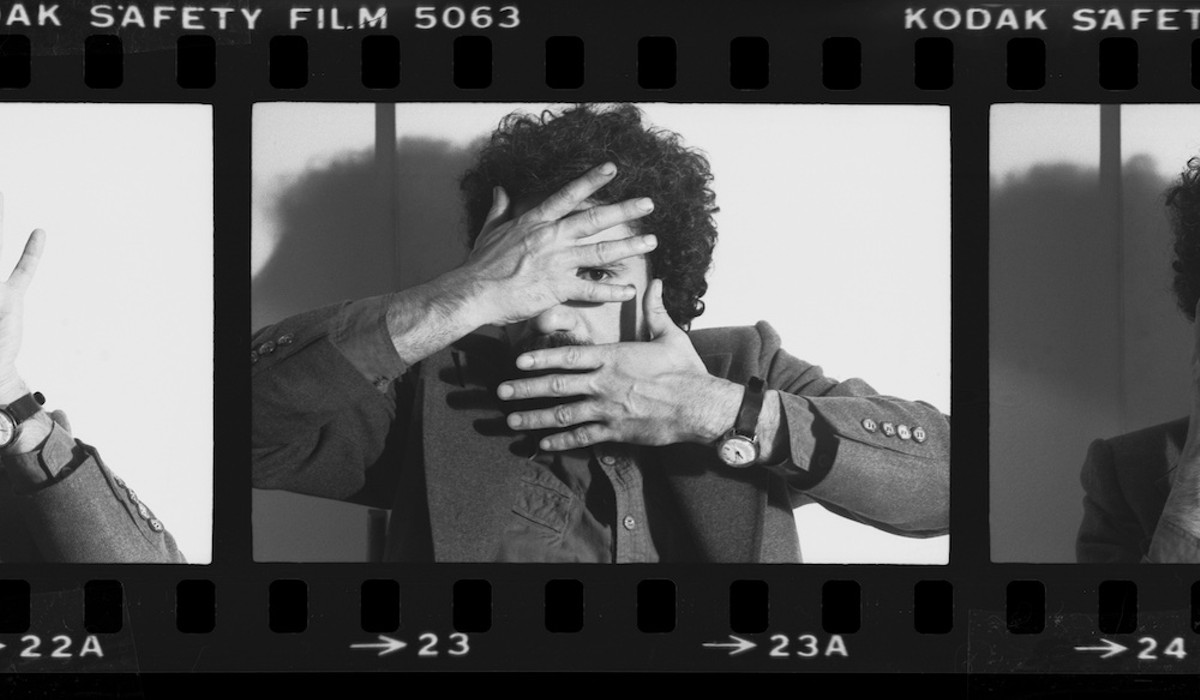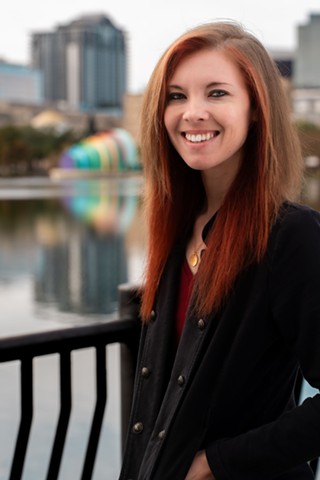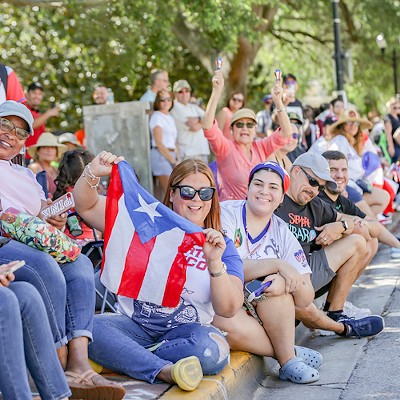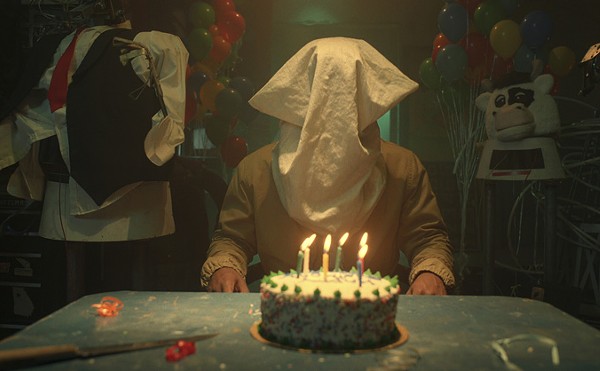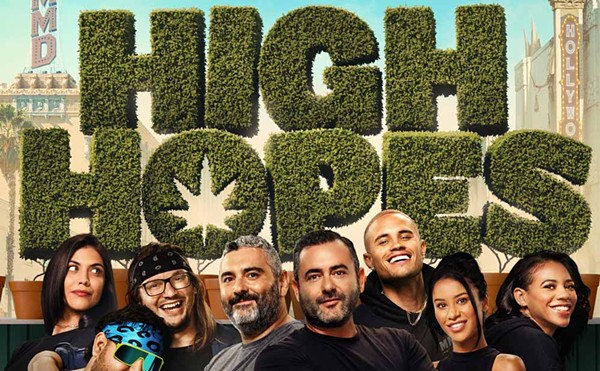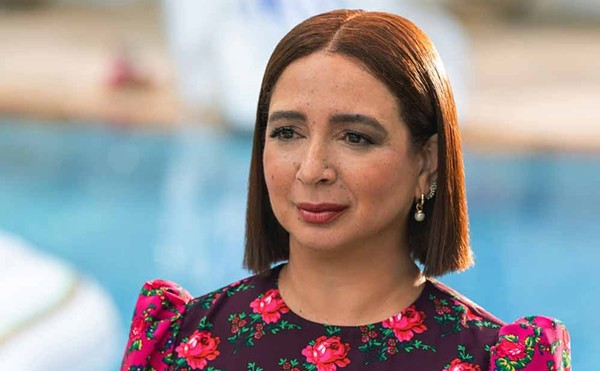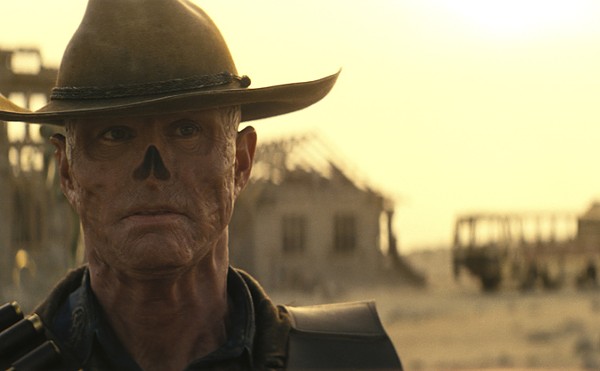The Global Peace Film Festival, an annual event, is returning to Orlando this month for its 21st year (there's a legal drinking age joke in there somewhere), featuring a diverse, carefully curated lineup of 38 films chosen to help serve as "catalysts for change."
With thousands of attendees each year, according to Streich, the festival is a popular event among local film enthusiasts, particularly those who appreciate or even favor films that explore topical social and political themes, in addition to historically grounded fights for racial justice and civil rights for marginalized groups.
This year's lineup of films tackles everything from immigration to addiction, global conflicts, gender identity, life post-incarceration, grappling with a life of "survivor's guilt" as a post-war veteran, and multiracial unity in Florida during the Civil Rights Era.
For film attendees, "the excitement is when the lights go down and people are getting ready to see a new film," says Nina Streich, the Global Peace Film Festival's founder and director. "For us, the excitement is even more so when the lights come back up and people are sitting a little taller in their seats, wondering, 'Gosh, I wish there was something I could do about that.'"
The festival runs Monday, Sept. 18, through Saturday, Sept. 23. Films will be shown at multiple venues in the downtown Orlando and Winter Park areas, including CityArts, Enzian Theater, the Timucua Arts Foundation, the Winter Park Library and Events Center, and the Bush Auditorium and Galloway Room on the Rollins College campus. A virtual pass is also available for purchase, for a virtual festival held the week after the IRL one, for anyone unable to make it out to a local venue.
The annual festival, always held in Orlando, first kicked off in 2003, the same year that the United States went to war with Iraq. In the backdrop of a global antiwar movement, Streich tells Orlando Weekly, she wanted the festival to look beyond the concept of "anti-war," to offer a more positive, actionable vision for how to achieve a more peaceful world.
The term "peace" gets a bad rap, Streich says, because it's often viewed as a bit hokey, reminiscent of hippies, or just too passive.
People have told her she'd get more attendees if the nonprofit scrapped "peace" from the festival's title. But Streich's conceptualization of peace, a critical component of the nonprofit's overarching mission, is different.
"Peace is not the opposite of war," Streich muses, conjuring the spirit of American composer and playwright Jonathan Larson (RIP) somewhere. "Peace is so much more than that and should be something that everybody aspires to, whatever their own interpretation of that means."
Inspiring action
Although this isn't pertinent to every film they show, Streich argues that the festival isn't just a passive affair, it's also a call to action.
"A lot of people feel overwhelmed by the magnitude of problems in the world," says Streich. It can make someone feel as though there's little they can do as just one person.
The festival, and the panels hosted directly after, offer not just insight into the film or its subject matter, says Streich, but also opportunities to take action as an individual or plug into collective efforts.
For instance, joining a river cleanup group or a social or political advocacy organization. Writing to legislators, signing petitions or gathering petitions for causes you’re passionate about, like abortion rights or ending police violence.
It's not just a marketing pitch. Streich offered several examples of former attendees she's heard from who went on to develop advocacy groups and campaigns, or change areas of study or careers because of a film they saw at the festival.
The nonprofit also tries to make sure the festival isn't closed off to people due to cost barriers or other obstacles to access. They donate tickets to youth organizations.
One year, a media teacher at Jones High School, a school in Parramore with a majority-Black student population, asked if she could bring some students to see a film. Streich responded, extending an invitation for them to view a film at Rollins College — an affluent, private liberal arts school — called War Dance, which documented children from a refugee camp in war-ravaged Northern Uganda as they prepare for a national dance competition.
Later, Streich heard from the teacher over email that the experience was "life-changing" for the students.
"The email made me cry," Streich recalls. "Really, that's like, what you want to achieve with a screening."
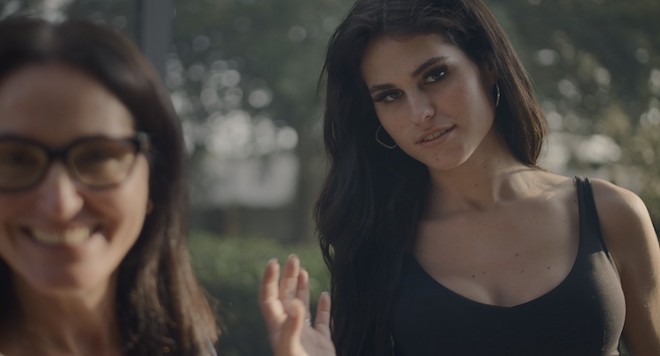
A local angle
Film submissions for the festival come in from everywhere, but the nonprofit does look for films with Central Florida ties. This year is no different.
One film, titled Lyra, explores the life and death of Irish freelance journalist Lyra McKee, who is honored through a mural on Mills Avenue that was recently defaced, but quickly restored by members of the Orlando community.
McKee, 29, was fatally struck by a bullet during a riot while on assignment in 2019. The mural, located near Orlando's Zebra Youth center, was dedicated to McKee, herself a lesbian, after she visited Orlando in 2017. It was one year after the Pulse nightclub shooting, and McKee made an impact on local activists with her ability to bridge divides.
Another film, Marching Forward, is co-directed by UCF history professor Robert Cassanello, who has spoken out about the DeSantis administration's whitewashing of African American history. Cassanello, whose work we've covered in previous stories, joined a lawsuit against the state of Florida over HB 7 (2022), known as the "Stop WOKE" Act, which restricts discussion of race and other protected categories in schools and workplace trainings.
Marching Forward follows two Orlando band directors — one Black, one white — who brought two high-school student bands together to perform at the 1964 World's Fair in New York City.
Evan Ever After explores the journey of former Orlando high school student Evan Bialosuknia, who was crowned Florida’s first transgender homecoming queen at MetroWest's Olympia High School in 2021. "It's just a really lovely film that will really make you feel good," says Streich.
Other films with local ties at this year's festival, says Streich, include Crosses in the Dust, a film about obstacles immigrants face along the Arizona-Mexico border produced by UCF employees; Jerry's Last Mission, which explores the life of fighter pilot and World War II veteran Jerry Yellin, who developed post-traumatic stress disorder and was forced later in life to reckon with the dark repercussions of post-war trauma and survivor's guilt; and several short films from the "Healing Perspectives" program, including Overdose and Oppression and Shattering the Gender Matrix. (Evan Ever After is also part of this program.)
Several people featured in those films and/or their loved ones will be speaking as panelists after the films. That includes Evan Bialosuknia, Lyra McKee's partner and one of Jerry Yellin's sons.
Bringing it all together
Streich, who formerly served as head honcho over the festival's affairs, stepped down from her leadership role this year, welcoming businessman and Central Florida Community Arts board member David Wheeler into the fold as Global Peace Film Festival CEO.
While still serving as the festival's director, Streich — who lives in New York — says it's helpful to have someone on the ground in Orlando who can help the festival continue to grow.
Today, the festival comprises more than just film screenings. There's also a kindergarten-through-12th grade Peace Art Exhibit, and a separate photographic exhibit this year at CityArts highlighting the works of photojournalist Peter Morey, who photographed South African anti-apartheid activist Nelson Mandela in the last years of Mandela's life. But film is where it all started.
Streich says the nonprofit receives 250 to 300 film submissions each year through an open call process, although just a fraction of those end up being selected.
Factors like subject matter and relevancy to the mission of the annual event are major considerations. They also often feature new works by festival alumni.
Consistency is a key part of what they see themselves bringing to Orlando each year, says Wheeler, who — albeit new to his role in the nonprofit's leadership — is no stranger to Central Florida's arts scene.
That's true even amid Florida's turbulent political landscape, where restrictions on classroom discussion of gender identity and sexual orientation, racism, and limitations on drag performances threaten individual freedoms and complicate the community's culture of inclusivity.
"Obviously we have to consider the political environment in terms of our programming," Streich admits. But that doesn't change their overarching mission.
"When the festival started, I really wanted it to be able to speak across the aisle," she shares. "I still think that's incredibly important."
Updated 9/13/23 to clarify the year of journalist Lyra McKee's death. A previous version of this story stated that McKee was killed in 2014, not 2019. We regret the error.Subscribe to Orlando Weekly newsletters.
Follow us: Apple News | Google News | NewsBreak | Reddit | Instagram | Facebook | Twitter | or sign up for our RSS Feed

